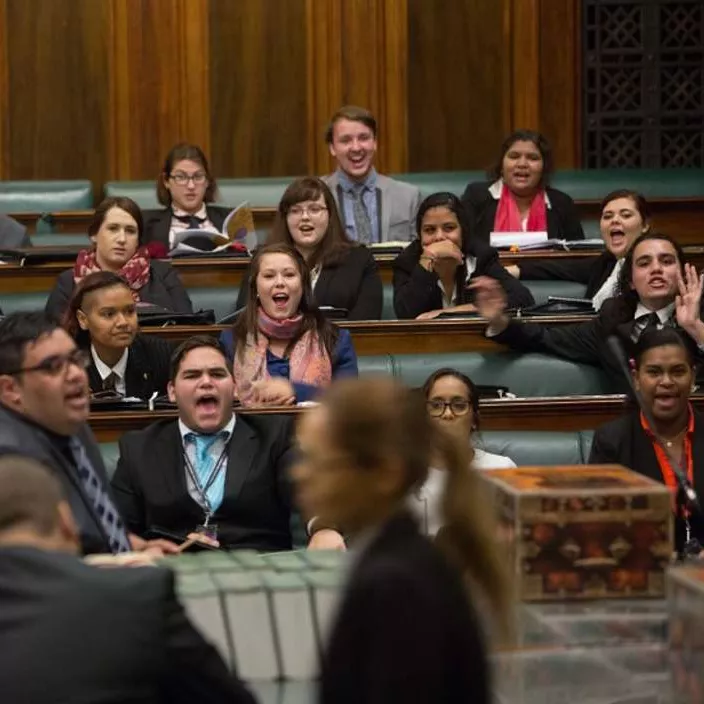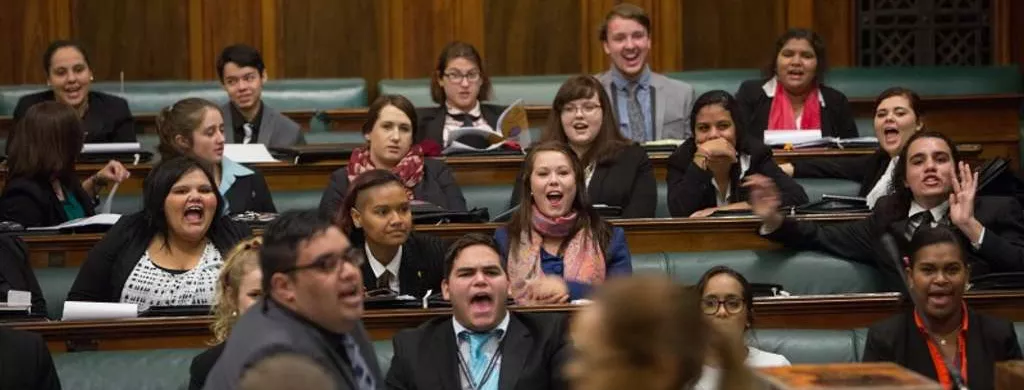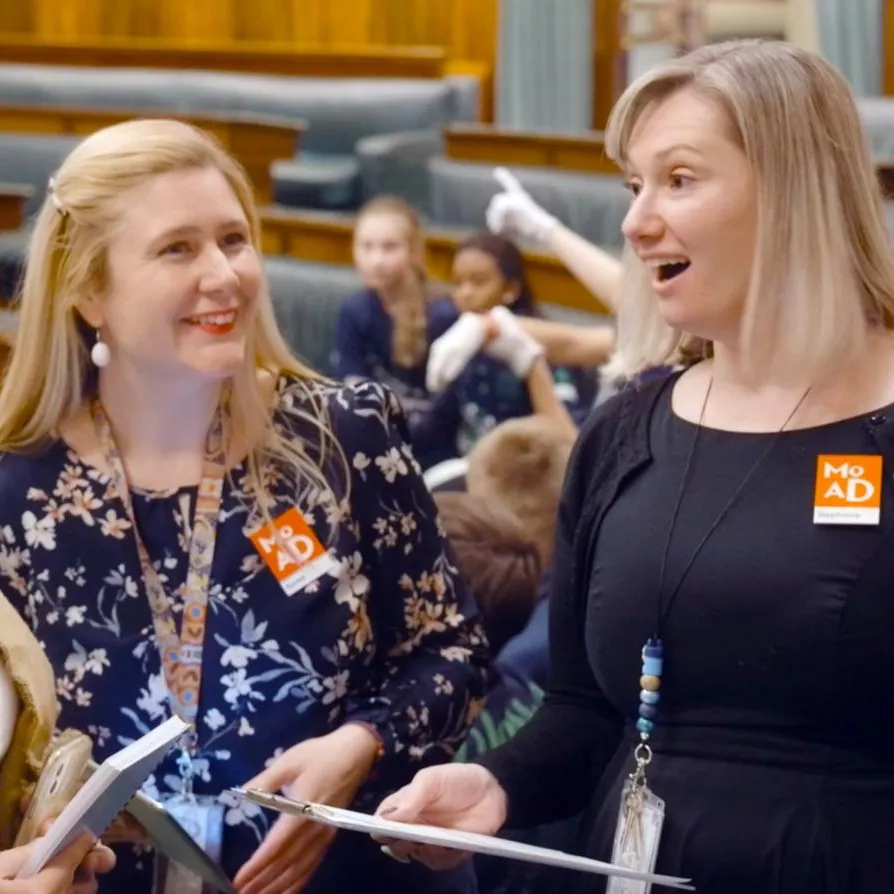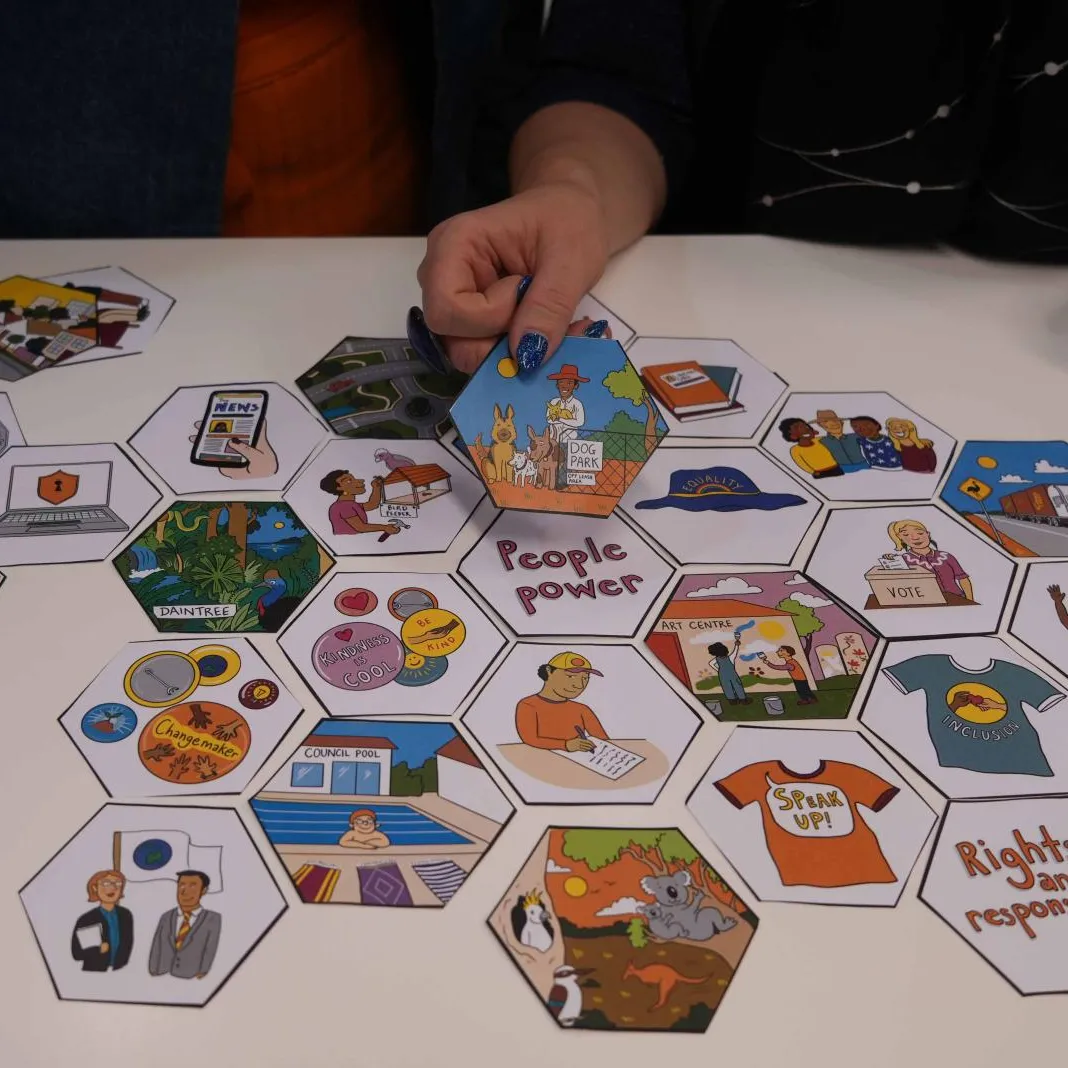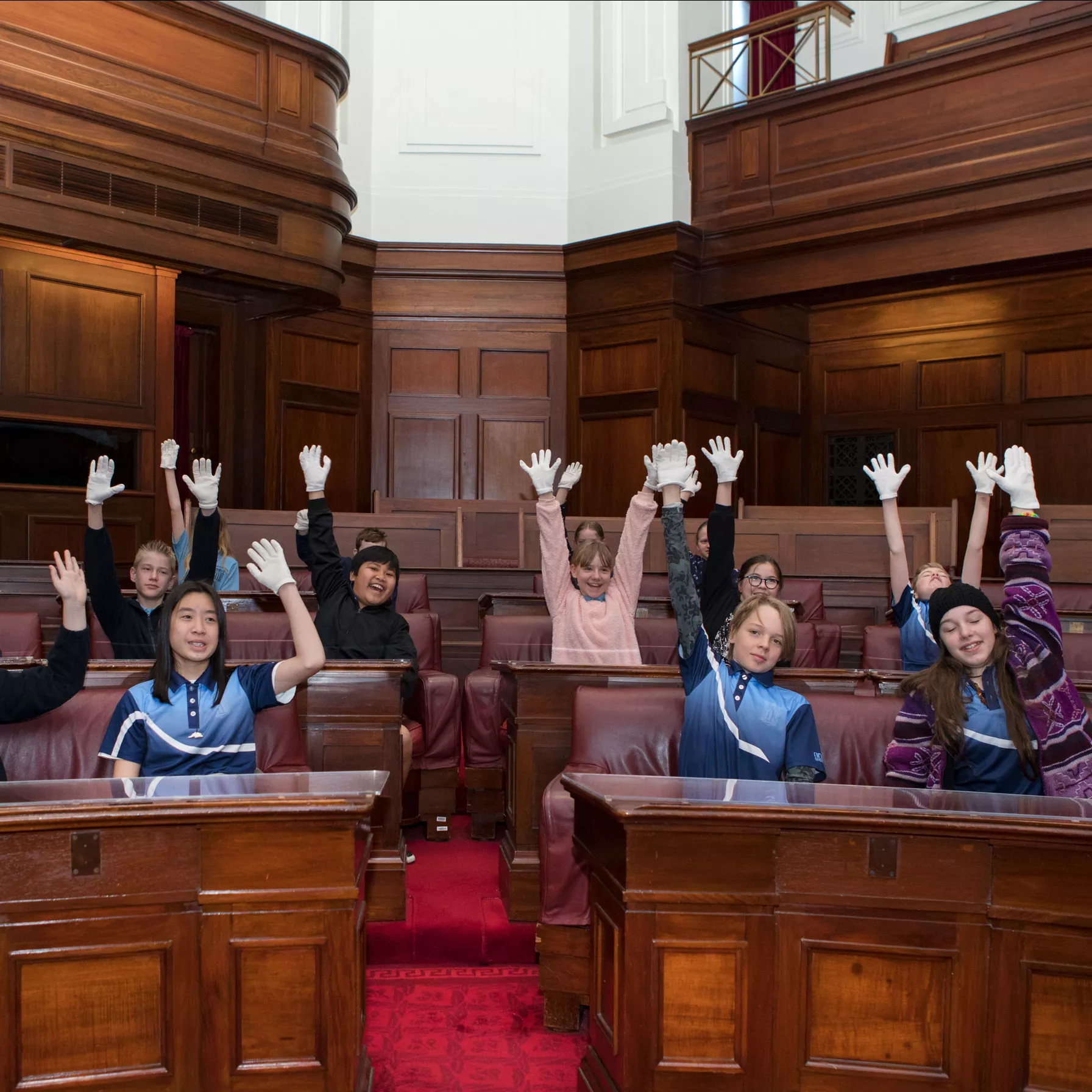Our Voices, Our Choices
Curriculum Links:
Years:
7-12
Onsite experience
Cost
$7 per student, accompanying teachers free
Students will engage in deeper learning as they explore the importance of civic participation in a functioning democracy. Students will collaborate and discuss contemporary issues in our exhibitions, using our interactive trail program.
In either the historic House of Representatives or Senate chamber, students will:
- use modified Hansard speeches to take on the role of historic Australian politicians and re-enact debates on national service or the Tasmanian Franklin River
- actively participate in parliamentary process
- add their thoughts and ideas to the debate
- consider their role in our democracy and discuss how they can actively participate.
Key information
All onsite excursions need to be booked in advance. To protect our heritage building, self-guided groups are not permitted.
For information about getting to the museum, facilities, access and supervision ratios visit the Plan a school visit page.
60 minutes
5–50
If you're travelling over 150 km to visit Canberra you may be eligible for the Parliamentary and Civics Education Rebate. Your PACER application must be submitted 3 weeks prior to your visit and you are required to complete a one-hour facilitated program.
We will complete your PACER paperwork after checking how many students attend the program. We're unable to complete this without seeing the group. You will receive an invoice after your visit based on how many students attend the program.
Please email bookings@moadoph.gov.au or call 02 6270 8222 with any changes or cancellations.
Check our Terms and conditions for information about changing or cancelling programs.

